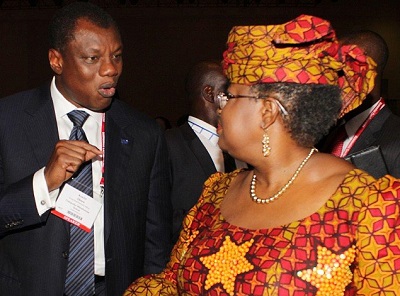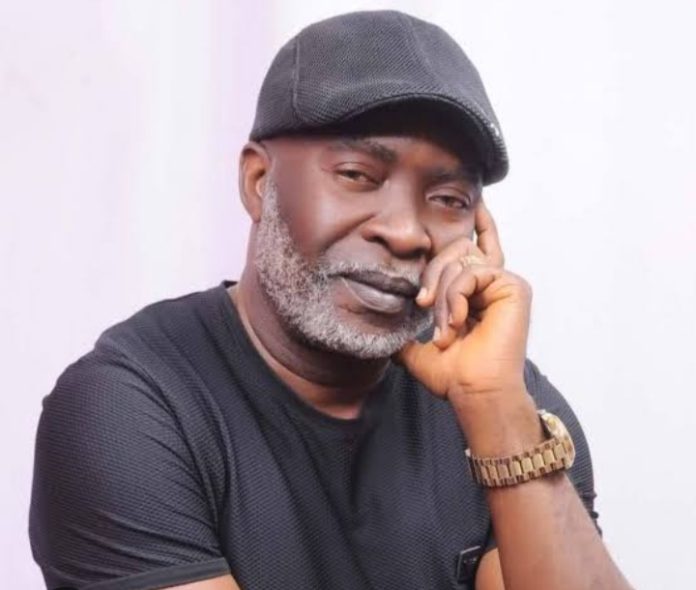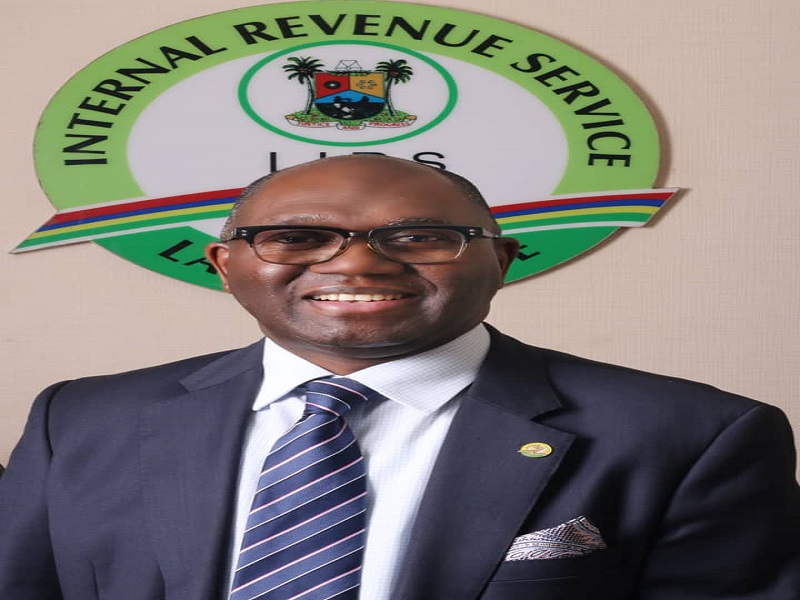News
Zinox, Doing Good with CSR

Zinox, Doing Good with CSRCorporate social responsibility (CSR) is a massive bandwagon; generating both accolades and cynicism.
But when it comes to a local company doing extraordinary things without expectation of recognition, it shows extraordinary determination to push the society a little further on towards the heights of excellence.
And while many organizations and institutions feel deeply frustrated with the government and indeed the country, this company remain convinced that the fundamental structure must be underpinned for generations yet unborn.
It is the story of the exceptional corporate social responsibility initiatives of Zinox Group, the proudly Nigerian IT conglomerate.
It is a story of placing the country first; of sticking with the society through thick and thin; and of giving back to men and women that have helped the company grow.
CSR is an integral part of the Zinox Group’s development policy. It is part of the everyday life of the company.
Its objective is to allow the Group pursue sustainable yet profitable growth while having a positive impact on the society in which it develops.
For instance, the Group donated items worth over N50 million to the Lagos State Government.
These items include ; four units of fully equipped Security Vans, 150 units of Digital Radio, 150 units of Digital Solar lamp and 150 units of solar torch meant to enhance the efficiency and digital comfort of the Police and other security organizations in Lagos State while on duty.
Zinox Group also made the same intervention in Imo State that cuts across security, digital equipment, Information and Communication Technology development for school pupils and training for teachers. It is also spending N50 million in the state.
The company’s CSR which is championed by Leo-Stan Ekeh, the chairman of the group and enthusiastically embraced by the board of directors and staff also targets the younger generation.
The company is to use four schools in Lagos state as Digital Content Centres for its new digital Product – the Zinox Whizkid Ver. 11, which has helped many students to achieve excellent result in GCE, WASCE, JAMB and Post UME nationwide.
Ekeh said Zinox will deploy the equipment and content, train the teachers in its digital laboratory in Gbagada, Lagos and certify them ready to challenge the best teachers in the world.
Zinox has a history of a responsible corporate citizenship in Lagos beginning with the equipping of a digital laboratory at the Lagos State Polytechnic, Ikorodu.
It has upgraded and tarred of the Redemption Crescent, Gbagada; aroused competition in mathematics for pupils in Primary 4; donated computers to many schools in Lagos State including Queens College, Yaba, and Archbishop Aggey Memorial Secondary School, Mushin; trained four budding entrepreneurs in the Spirit of the True Nigerian Entrepreneur, SoTNE and settled medical bills of many patients.
In Imo State, the group is a household name where it has touched many lives.
It recently topped it up with an intervention that cuts across security, digital equipment, Information and Communication Technology development for school pupils and training for teachers and worth N50 million.
The donation include four security vans, 150 Jonta flash lights, 150 self-charging digital lanterns, and 150 I-Max radio sets that would help support the security monitoring responsibility of the state.
Ekeh said his group of companies primarily concerned with knowledge development and building a new generation of Nigerians would also donate digital knowledge content encapsulated in the Zinox Whizkid Version 2 to four schools in the state.
This content would make kids from public schools better, while enhancing the overall academic performance of the underserved.
Elsewhere, in support of structured overall social development of Imo state, Zinox released some N10milion a few months ago to the Imo Foundation set up by Governor Rochas Okorocha.
The Group has a tradition of executing major CSR every five years outside its annual commitments in the spirit of Zinox.
The company had built and equipped digital laboratories at the Federal Polytechnic, Nekede; Imo State University; Federal University of Technology, Owerri; and some secondary schools in the state.
There is no geo-political zone in the country that has not been touched by Zinox interventions in tertiary, secondary and primary education since the company’s interest is in capacity building has benefitted scores of Imo indigenes in the form of scholarships at all levels of education, including post graduate education in world class European and American universities.
Zinox CSR is intensely focused on the building of capacities for the growth of a knowledge society and equipping Nigeria to host complex events.
From Katsina to Awka and from Markudi to Ikorodu, Zinox is strategic interventions aimed at building capacities.
It has used CSR as a way to motivate all employees – starting at the lowest level of the organization because as part of its internally-focused initiative, the Zinox Group offer scholarships to the children of all its employees who earn less than N1milion as gross salary per annum.
In simple terms, Zinox is pro-active towards “doing good”.
News
Stanley Amandi, Nollywood Actor Arrested over Alleged Coup Plot against Tinubu

Stanley Amandi, veteran Nollywood actor and filmmaker, has been arrested by the Nigerian military over his alleged role in a foiled coup plot to overthrow President Bola Tinubu’s government, according to an exclusive report by Premium Times.

Stanley Amandi, Nollywood Actor
The filmmaker, also a former chairman of the Actors Guild of Nigeria (AGN) Enugu State chapter, was reportedly detained in September 2025 alongside several military officers accused of planning a violent overthrow, including potential assassinations of top officials, according to the newspaper’s sources.
Reports indicated that the coup plotters planned to wholesale assassination of top government officials including President Tinubu, Vice President Kashim Shettima, Senate President Godswill Akpabio, and Speaker of the House of Representatives Tajudeen Abbas, among others.
On Monday, the Defence Headquarters confirmed the plan to illegally oust the Tinubu administration, saying the indicted officers will be arraigned before military judicial panels.
In its statement, the Defence Headquarters said the investigation has been completed and forwarded to “appropriate superior authority in line with extant regulations.”
According to the military, the investigation was “comprehensive” and conducted in line with established procedures, examining “all circumstances surrounding the conduct of the affected personnel.”
The military disclosed that the findings identified “a number of the officers with allegations of plotting to overthrow the government,” describing such conduct as “inconsistent with the ethics, values and professional standards required of members of the Armed Forces of Nigeria.”
Mr Amandi has featured in many Nollywood movies and is known for his work as an actor, production manager and director.
His notable works include “The Album,” where he served as director; “Tiger King,” where he also served as director and produced in 2008; “Cornerstone,” produced in 2019; and “Once Upon a Dream,” in which he appeared as an actor in 2024.
Mr Amandi’s last Instagram post was on 19 September 2025, shortly before his arrest.
News
Firms Commit to Boost African Robotics Market

AfricAI and Micropolis Robotics have signed a multi-year exclusive distribution and deployment agreement, which marks one of the continent’s most significant robotics market entries.

Micropolis AI Robotics is a United Arab Emirates-based robotics manufacturer operating in autonomous systems, while AfricAI is a company building practical, revenue-driven artificial intelligence (AI) systems for African businesses, governments, and global partners operating in emerging markets.
According to the agreement, Micropolis Robotics named AfricAI as its exclusive continental partner, prohibiting direct sales, alternative distributors, and third-party agents from operating in the territory.
The partnership establishes AfricAI as the primary execution, localisation, and go-to-market platform for intelligent robotics in Africa’s industrial, security, logistics, and infrastructure sectors.
AfricAI said this exclusive mandate positions the company as the gateway for advanced autonomous systems entering African markets, ensuring regulatory compliance, local capacity building, and sovereign control over deployment frameworks.
The partnership, according to the two parties, moves beyond software- based AI into the realm of physical AI — intelligent machines capable of operating in complex, real-world African environments.
“This is not a collaboration, it is a market-shaping mandate,” said Fareed Aljawhari, CEO of Micropolis Robotics. “AfricAI now represents the exclusive gateway through which Micropolis technologies enter Africa. Their sovereign AI vision, operational reach, and regulatory fluency make them the only partner capable of executing at a continental scale.
Furthermore, the agreement enables AfricAI to integrate Micropolis’ autonomous robotics systems with AfricAI’s sovereign AI stack, resulting in AI-powered security and surveillance platforms, robotics-enabled logistics and port operations, industrial automation, smart infrastructure, and municipal robotics tailored to African operating conditions.
Initial deployments will commence in security, smart infrastructure, and logistics, with phased expansion across multiple African states as part of AfricAI’s broader continental AI, data, and intelligent infrastructure strategy.
The agreement also includes long-term performance-linked expansion rights, automatic renewals, and a defined localisation framework to support robotics deployment, workforce training, and skills transfer across Africa.
Prince Malik Ado-Ibrahim, executive chairman of AfricAI, said: “Africa does not need imported automation — it needs sovereign, context-aware intelligent systems. This exclusive mandate allows AfricAI to industrialise robotics deployment at scale while retaining control, compliance, and value creation on the continent.”
News
Subair: LIRS Won’t Raid Accounts – Unless You’ve Lost Every Court Battle

Lagos State Internal Revenue Service Executive Chairman Ayodele Subair Tuesday demolished online panic over alleged bank account raids, insisting the agency’s “Power of Substitution” targets only hardcore tax dodgers who have exhausted every appeal from tribunals to the Supreme Court over half a decade of disputes.

Ayodele Subair
Subair, speaking on Arise TV, shredded viral fears that LIRS would swoop on residents’ savings without warning, clarifying the mechanism under Section 60 of the Nigeria Tax Administration Act 2025 kicks in solely after assessments spark objections, reconciliations, demand notices, and a gruelling courtroom odyssey through High Court, Court of Appeal, and apex rulings.
The LIRS weekend notice had ignited fury by announcing enforcement via third parties – banks, employers, tenants, debtors – to claw back unpaid Personal Income Tax, Capital Gains Tax, Stamp Duties, and Withholding Tax from chronic defaulters holding funds or owing money to them, whether due now or accruing later.
Subair likened the process to a “long timeframe, not less than five years,” where recalcitrant bigwigs who stonewall every step become fair game, with LIRS directing agents like customers or partners to divert payments straight to the taxman in lawful settlement.
Far from arbitrary grabs, the chairman stressed it’s a final resort for “entirely recalcitrant” holdouts who ignore Notice of Refusal to Amend (NORA) and every olive branch, ensuring Lagos coffers snag rightful revenue fuelling the state’s bulging budget without shotgun raids on compliant payers.
As social media buzzes with defiance – “They can’t touch my account!” – Subair’s blueprint spotlights Nigeria’s tax evasion scourge starving subnationals of trillions yearly, with Lagos alone chasing billions in arrears amid federal revenue wars and economic headwinds squeezing the commercial capital’s 25 million souls.
Industry voices nod to the legality but plead for digital dashboards tracking disputes transparently, warning overzealous recovery could spook investors in Africa’s fintech and startup mecca already reeling from naira nosedives and grid glitches.
With LIRS poised to unleash the hammer on vetted violators, Subair’s clarion call aims to separate myth from muscle, bolstering Lagos’ IGR juggernaut that hit N815 billion last year while daring defaulters to test the full judicial gauntlet before crying foul.

 Telecom2 days ago
Telecom2 days agoPolice Bust ₦7.7bn Telecom Hack Gang, Seize 400 Laptops in Massive Fraud Swoop

 E-Financial3 days ago
E-Financial3 days agoPayPal Goes Live in Nigeria through Paga

 Broadcasting3 days ago
Broadcasting3 days agoNITDA, NBC Explore Strategic Collaboration on Digital Transformation, Media Regulation

 General News2 days ago
General News2 days agoNaira Smashes Through ₦1,400 Barrier in Official FX Rally

 General News2 days ago
General News2 days agoNCC Slaps ₦250,000 Fee on Trial Licences to Spur Telecom Innovation

 General News3 days ago
General News3 days agoFacebook Powers Connection, Creativity at African Creators Summit 2026

 E-Business3 days ago
E-Business3 days agoGold Hits Record $5,110/Ounce Amid Trump Tariff Threats, Geopolitical Fears

 Telecom3 days ago
Telecom3 days agoTikTok, Instagram Blamed in US Youth Suicide Lawsuit



























